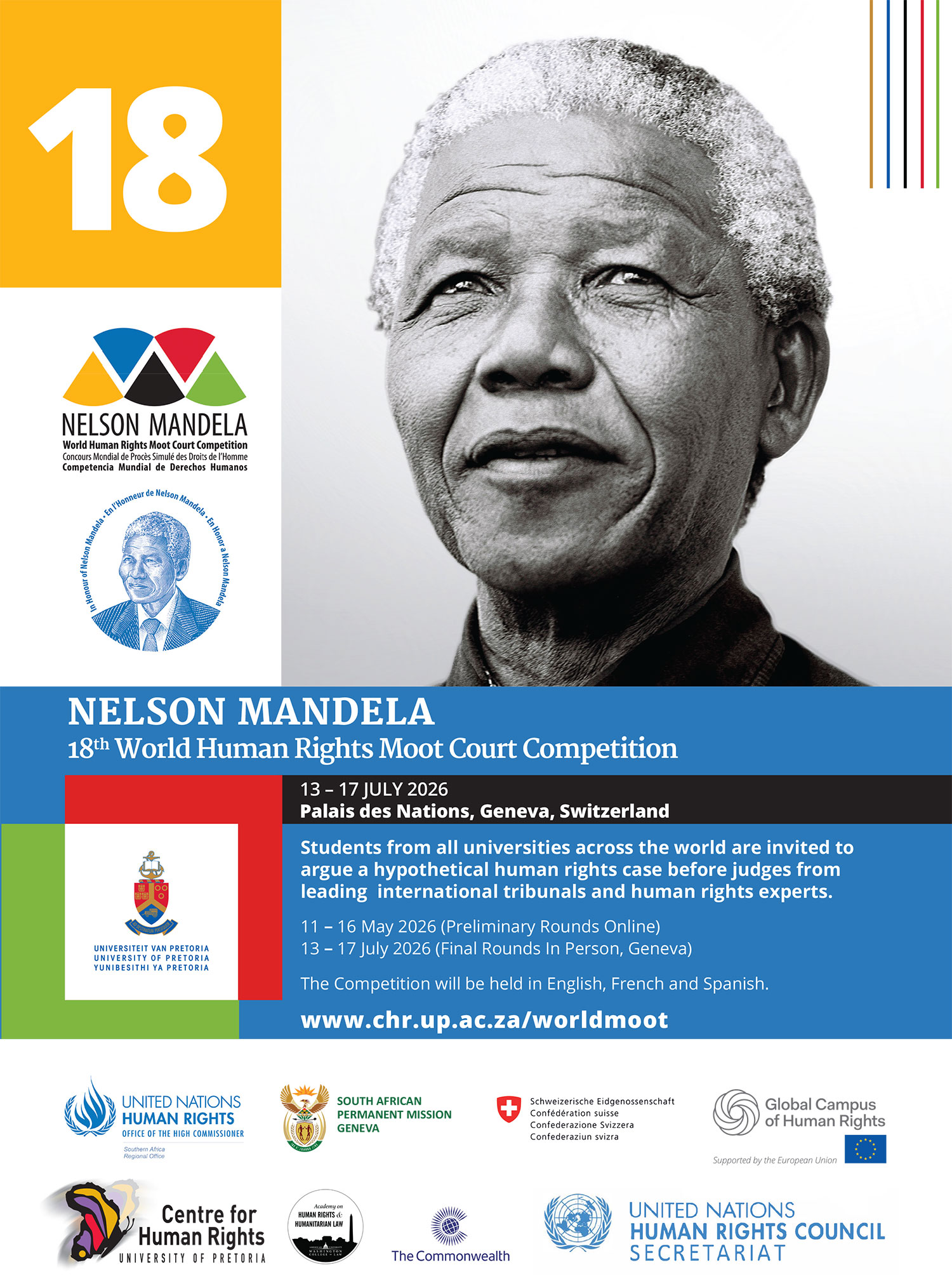 18th Nelson Mandela World Human Rights Moot Court Competition
18th Nelson Mandela World Human Rights Moot Court Competition
Thank you for your interest in serving as a Judge in the Nelson Mandela World Human Rights Moot Court Competition. Every year the Competition draws academics, lawyers and human rights professionals from around the world with valuable experience in human rights or international humanitarian law. The Competition could not exist without the dedication and enthusiastic support of these individuals. We thank all of our judges for their important contribution to strengthening the promotion and protection of human rights, and we hope you will be able to join us this year.
Eligible judges
Volunteer Judges for the Competition must be in a possession of a university degree as well as have one year of post-graduate experience in human rights or legal fields. Many Competition Judges are international law experts, activists, practitioners and academics from around the world, and more recently, former participants of the Competition.
Judges' responsibilities
Oral preliminary rounds last approximately 90 minutes each. Judges sit on a panel of three to seven judges, and listen to oral arguments presented by two two-person teams, representing the Applicant (victims) and the Respondent (State). Judges may judge as many oral rounds as they wish.
Judges are also allowed access to the Bench Memorandum. The “Bench Memo” discusses the legal issues addressed in the case for the purpose of briefing the judges. The content of the Bench Memo is strictly confidential, and will not be made available to Participant Teams, coaches/faculty representatives or observers during the course of the Competition.
Finally, it is important that Competition judges read and understand the Competition Rules, as many apply directly to judge conduct and scoring.
Registration and selection
You may submit your application to be a Judge to:
Dr Eduardo Kapapelo
eduardo.kapapelo@up.ac.za.
Please include your current CV or resume and a brief paragraph highlighting relevant experience. As applications are received, the world moot team will evaluate the applications and select the judges who will be participating in this year’s event. Once all teams have registered (in the last week of April) the Competition’s organizers will request that you complete the second portion of the registration form, indicating all of the registered teams with whom you have conflicts, and listing your time availability for the week of the Competition.
Benefits of judging
Judging at the Competition provides a unique opportunity to network with leading scholars and activists in the field. It is a wonderful step in one’s professional development, and engages all participants in creative, cutting-edge dialogue. For these reasons, many judges return year after year.

